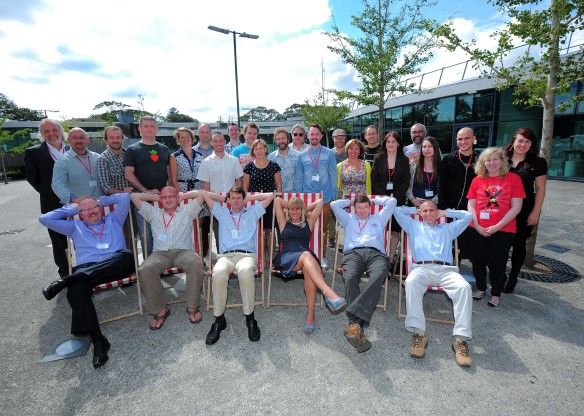Volunteers are the lifeblood of many events and I can’t thank all of them enough. For all those who staff car parks for County Shows to those who marshal Christmas Lights Switch-ons, all those who stand on road closures and all those who fundraise, all those who check tickets and those who take on site logistics. Thank you.
Not all volunteers however are created equal and by this I mean that all are wonderfully different. Some are more useful than others. Some are better at working in a team than others. Some are great with the general public and some are brilliant at getting on with whatever is asked. We all have our own strengths and weaknesses and it can be difficult sometime to co-ordinate those differences in such a way that all motivations and interests are satisfied. There is no option for us event managers not to satisfy those motivations because we need those people to help us make the event happen safely so we need to prioritise making sure that all of those unsung heroes are supported and engaged in what we are trying to do.
To do this, we need to understand why volunteers want to be part of what we are offering and we need to recognise that there is no ‘one size fits all’. For example, we are working with over 60 volunteers from the BA(Hons) Creative Events Management course at Falmouth University for City of Lights. City of Lights is the largest lights switch on event in the UK outside London and as such offers Falmouth students the opportunity to develop their skills and apply their learning to a large scale project. This year we have tailored the offer so that 6 of the 3rd year students are acting as team leaders for sections of the route and we have added in a full day of training for all of the volunteers in crowd management, communications, risk management and event logistics. This is a hugely beneficial relationship for all parties with the course gaining profile and experiences for the students, the students developing their practical skills and the event having sufficient staff to ensure it can all happen safely.
Without this commitment from the University, we simply could not run the event and we are not alone. Many events are dependent on the goodwill and commitment of volunteers at all levels from initial ideas through to implementation and evaluation. With cuts in local authority budgets, event activity is increasingly reliant on volunteer and community action and this presents a challenge for the events industry as a whole. How can we support volunteers in ensuring that their events are not only safely and compliantly managed (when often the volunteers involved don’t have the knowledge or experience and neither do they have the time to undertake training even if it’s available) but also that the events are creative and dynamic and meet and exceed audience expectations?
I’m afraid there is no quick or easy answer to this but working with supportive organisations such as Universities to create mutually beneficial partnerships is one way forward that reassures the event manager that the volunteers are useful people and enables the volunteers to gain experience and knowledge.
Claire Eason-Bassett, Managing Director of Mackerel Sky Events


